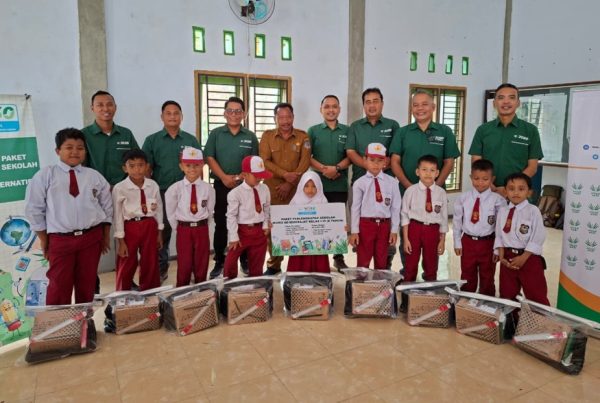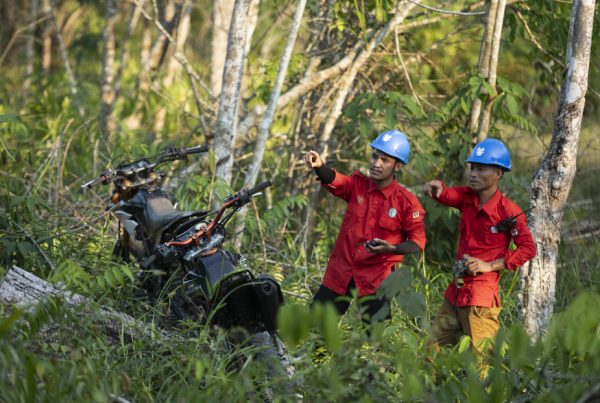Cooperation between all parties is key to solving the root problem of land and forest fires.
In 2015, Pelalawan Regency was hit by severe forest fires. The resulting haze forced children to miss school, residents to stay indoors, and caused widespread respiratory problems. “Many people got sick,” recalled H Dahlan, the local community leader.
The incident prompted Asian Agri to invite the community to join the Fire Free Village Program (FFVP), which provides tools and training to help prevent fires. Crucially, FFVP provides economic incentives for local communities to prevent fire on their land, giving them a vested interest in making it a success.
Rahman Pasaribu, a village FFVP leader, admits that before joining the program, knowledge in the community was scant. Fire was used for everything from land clearance to garbage disposal, with little thought to what would happen if the flames spread. “We did not know how to safely extinguish the fires,” he said.
At first residents were skeptical about the program. “It used to be difficult for us to socialize the danger of forest fires, because it was difficult to change their habits,” said Rahman.
Recruiting from the local community was vital to overcome this. FFVP formed a partnership with the village to make preventing fire a community effort, not something being imposed on them from outside. Volunteers are drawn from the local population, who work together to monitor their land using tools and training provided by the company.
“The local residents are motivated by this program. Now, they are much more aware about forest fires,” he continued. “This program helped us a lot.”
The results speak for themselves: in 2016 Lubuk Ogong was free from fire, and the village has earned its first No Burn Reward, to be announced later this year. Rewards handed to other villages have included grants for community infrastructure, such as schools, mosques and markets.
Lubuk Ogong village is just one of the many villages taking part in FFVP. In 2016 nine villages in Riau and Jambi took part, reducing fire by 50 percent on average compared to the year before.
Preventing forest fires plays a vital role in Asian Agri’s sustainability plans. The company was one of the first to introduce a zero-burning policy back in 1994.
Asian Agri believes that effective prevention treatment to forest fires is important to manage sustainability plantation and conserve the nature. Asian Agri was one of the pioneers in introducing zero-burning policy in 1994, and in 2016 joined the Fire Free Alliance along with other companies such as APRIL.



